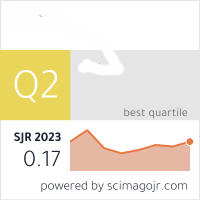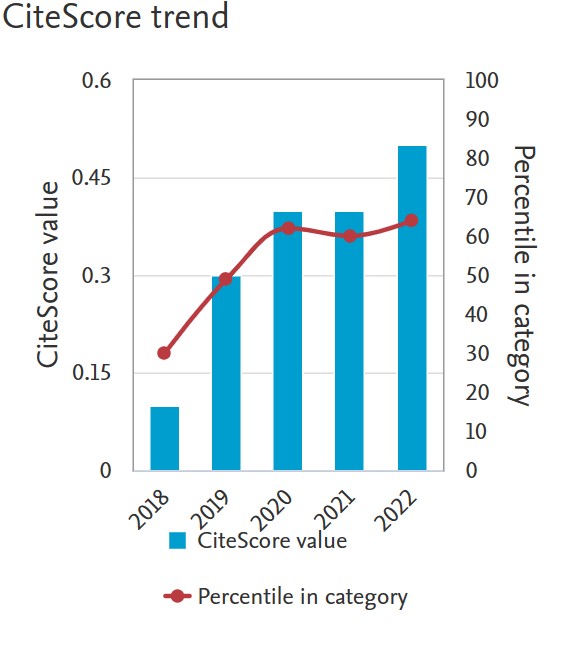Revealing the Differences Between Sundanese and Javanese Work Ethic in Bandung City
Keywords:
Work Ethic, Sundanese, Javanese, Work Discipline, Hard Work, Self ConfidentAbstract
The purpose of this study was to determine the differences in work ethic between Sundanese and Javanese civil servants in Bandung City. This study used a comparative descriptive method using a quantitative approach. Determining the sample in this study was using purposive sampling technique and amounted to 100 samples. Furthermore, the data collection technique used is a questionnaire distributed to civil servants who fall into the criteria for respondents for testing. Populations and samples in this study were Sundanese and Javanese civil servants of Bandung City totaling 100 respondents. Based on the results of statistical calculations, it is found that there are significant differences in the variables of Work Discipline, Hard Work and Self Confident in the Work Ethic of Sundanese and Javanese tribes in Bandung City.
Downloads
References
A.Potter, P., & Perry, A. G. (2011). Baku Ajar
Fundamental Keperawatan :Konsep,Proses dan
Praktik. EGC.
Bandura, A. (1986). Social Foundatioan ofThouhgt
and Action: a Social Cognitive Theory. New
Jersey: Prentice Hall, Inc.
Creswell, J. W., & Creswell, J. D. (2018). Mixed
Methods Procedures. In Research Defign:
Qualitative, Quantitative, and Mixed M ethods
Approaches.
Duckworth, A. L., & Quinn, P. D. (2009).
Development and validation of the short grit
scale (grit-s). Journal of Personality
Assessment, 91(2), 166—174.
Dweck, C. S. (1986). Motivational processes
affecting learning. American Psychologist,
(W), 1040-1048.
Hamali, A. . (2018). Pemahaman Sumber Daya
Manusia. Yogyakarta: PT Buku Seru.
Hasibuan, M. (2017). Manajemen Sumber Daya
Manusia. Jakarta:Bumi Aksara.
Hidayatullah, M. S. (2019). ETOS KERJA
ORANG JAWA DI KECAMATAN
MAKASSAR. 3(2), 1-9.
Ja’far, A. (2023). Teori Al-Qur’an Dalam
Penanggulangan Ketidakpercayaan Diri Pada
Remaja. UlnScof, 1, 557—564.
Komang Trisna Sari Dewi. (2021). Etos Keija Dan
Motivasi Kerja Sebagai Kunci Meningkatkan
Kinerja Karyawan. ARTHA SATYA
DHARMA, 96-103.
Kukulu, K. A. M. . L. E., Korukcu, O., Ozdemir,
Y, Bezci, A,, & Calik, C. (2013). elf
confidence, gender and academic achievement
of undergraduate nursing students. Journal of
Psychiatric and Mental Health Nursing, 20(4),
-335.
Lauster, P. (1992). Tes Kepribadian.
Marzuki, I & Hakim, L. (2019). Strategi
Pembelajaran Karakter Keija Keras. Rausyan
FikrtPemikiran Dan Pencerahan, 15.
Risma, G., & Arwiah, M. Y. (2022). Pengaruh
Disiplin Kerja Dan Etos Kerja Terhadap
Kinerja Pegawai Pada Badan Pendapatan
Daerah Kota Bandung. ATRABIS: Jurnal
Administrasi Bisnis, #(1), 30—36.
Rustandi, Y., & Anggradinata, L. P. (2019).
Representasi Etos Kerja Orang Sunda Dalam
Ungkapan Dan Folklor Sunda. Jurnal Salaka :
Jurnal Bahasa, Sastra, Dan Budaya Indonesia,
(1), 33-40.
https://doi.Org/10.33751/jsalaka.vlil.l146
Siagian, M. (2018). Peranan Disiplin Kerja Dan
Kompensasi Dalam Mendeterminasi Kineija
Karyawan Dengan Motivasi Kerja Sebagai
Variabel Intervening Pada Pt Cahaya Pulau
Pura Di Kota Batam. JIM UPB (Jurnal Ilmiah Manajemen Universitas Patera Batam), 6(2).
https://doi.org/10.33884/jimupb.v6i2.675
Sugiyono, D. (2022). METODE PENELITIAN
Kuantitatif, Kualitatif dan R&D (29th ed.).
Alfabeta CV.
Sujarweni, V. W. (2014). Metode Penelitian:
Lengkap, Praktis, dan Mudah Dipahami.
Yogyakarta: Pustaka Baru Press.
Tri Widodo, T., Alamsyah, N., & Utomo, C. B.
(2018). Analisis Pengaruh Gaya
Kepemimpinan, Disiplin Kerja Dan Pelatihan
Kerja Terhadap Kinerja Karyawan Di PT
Telkom Indonesia Cabang Batam. Jurnal
Industri Kreatif (Jik), 2(1), 97.
https://doi.org/10.36352/jik.v2il.77
Wang, M. T„ & Eccles, J. S. (2013). School
context, achievement motivation, and
academic engagement: A longitudinal study of
school-to-college transition. Journal of
Educational Psychology, 105(3), 709—725.
Widyanata, I. P. A., Mendra, I. W., & Harwathy,
T. I. S. (2022). Pengaruh Kemampuan Kerja
dan Etos Kerja Terhadap Kinerja Pegawai
pada BAWASLU Provinsi Bali. Jurnal EMAS,
(11), 91-101.
Downloads
Published
Issue
Section
License
You are free to:
- Share — copy and redistribute the material in any medium or format for any purpose, even commercially.
- Adapt — remix, transform, and build upon the material for any purpose, even commercially.
- The licensor cannot revoke these freedoms as long as you follow the license terms.
Under the following terms:
- Attribution — You must give appropriate credit , provide a link to the license, and indicate if changes were made . You may do so in any reasonable manner, but not in any way that suggests the licensor endorses you or your use.
- No additional restrictions — You may not apply legal terms or technological measures that legally restrict others from doing anything the license permits.
Notices:
You do not have to comply with the license for elements of the material in the public domain or where your use is permitted by an applicable exception or limitation .
No warranties are given. The license may not give you all of the permissions necessary for your intended use. For example, other rights such as publicity, privacy, or moral rights may limit how you use the material.











